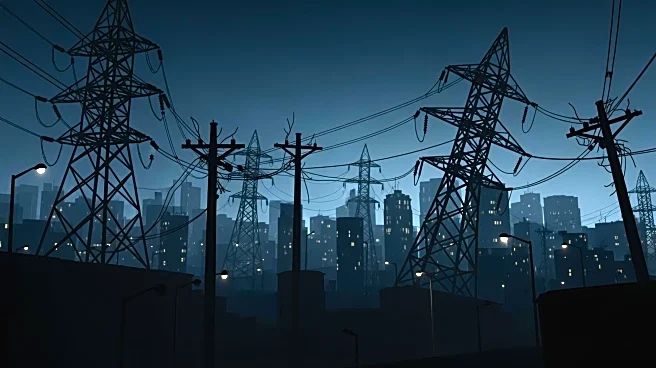What's Happening?
Tee Lopes, a renowned video game composer known for his work on Sonic Mania and Shredder's Revenge, has released remixes of songs from the upcoming game Hollow Knight Silksong. The remixes feature characters Sherma and Shakra, transforming their in-game tunes into lively club tracks reminiscent of 1990s and early 2000s European dance pop. Sherma, a character in the game, is depicted as a whimsical pilgrim with a penchant for singing, albeit with a unique style of playing his instrument. Lopes' remix of Sherma's tune adds a layer of reverb, enhancing its appeal. Similarly, Shakra's theme has been reimagined into a track that could have been a hit during the Vengaboys' peak popularity. These remixes have been well-received by fans, with some describing them as quintessential entertainment.
Why It's Important?
The release of these remixes highlights the growing trend of video game music crossing over into mainstream entertainment. By transforming in-game music into club tracks, Tee Lopes is not only expanding the audience for video game soundtracks but also showcasing the versatility and cultural impact of video game music. This development could lead to increased recognition of video game composers and their work, potentially influencing the music industry to explore similar crossovers. Fans of the game and music enthusiasts alike stand to benefit from this fusion, as it offers a fresh take on familiar tunes and introduces new audiences to the world of video game music.
What's Next?
As the anticipation for Hollow Knight Silksong continues to build, these remixes may serve as a promotional tool, generating further interest in the game. The positive reception of the remixes could encourage other composers to experiment with similar projects, potentially leading to more collaborations between the video game and music industries. Fans can look forward to the full release of Hollow Knight Silksong, where they will experience the original context of these remixed tracks. Additionally, the success of these remixes might inspire live performances or events centered around video game music, further bridging the gap between gaming and mainstream music culture.
Beyond the Headlines
The remixes by Tee Lopes also underscore the evolving role of video game music in cultural expression. As video games continue to gain recognition as a legitimate form of art, their soundtracks are increasingly being appreciated for their artistic value. This shift could lead to a reevaluation of how video game music is perceived and valued within the broader music industry. Furthermore, the playful and nostalgic elements of these remixes may resonate with audiences who grew up during the era of 1990s dance pop, creating a sense of nostalgia and connection across different entertainment mediums.








